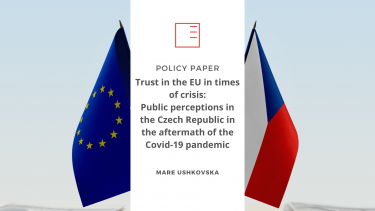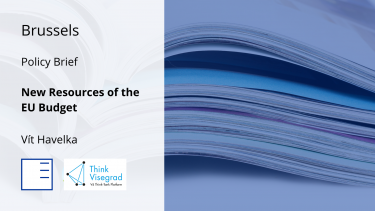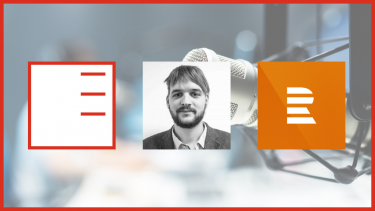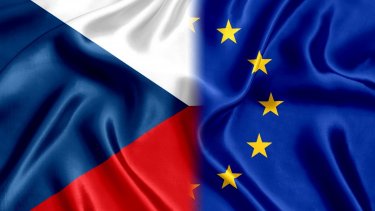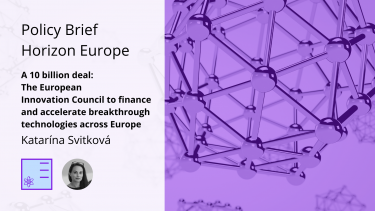Op-Ed | The grain dispute is the first sign that Ukraine's EU accession will not be easy. What obstacles await on this path?
The Ukrainian grain situation is making waves in Europe. Deputy Director and Head of the Brussels Office Ziga Faktor wrote an Op-Ed about the impact of the situation on the country's EU accession and how some member states are reacting.
Show more
Op-Ed | Subsidised fossil fuels are a major obstacle to solving the climate crisis. The Czech Republic and the world must confront it
One of the biggest obstacles to solving the climate crisis is fossil fuel subsidies. However, they have not received much attention in the Czech Republic. An Op-Ed on this topic was written by our Senior Research Fellow Kateřina Davidová.
Show more
RTVS | European Council Summit: Israel, Ukraine and migration
The representants of EU countries arrived in Brussels for the European Council Summit. Our analytist Vít Havelka has commented on the agenda of the meeting - that includes, among other things, the situation in the Middle East, continuous support of Ukraine, the EU's budget or the new migration and asylum pact - in an interview with RTVS.
Show more
Policy Paper | Trust in the EU in times of crisis: Public perceptions in the Czech Republic in the aftermath of the Covid-19 pandemic
How has the Covid-19 pandemic affected the Czechs' relationship with the European Union? This topic is addressed in a policy paper by visiting fellow Mare Ushkovska.
Show moreNavigating the Indo-Pacific: Dealing with Geopolitical and Security Shifts in the Region
We would like to invite you to the in person debate called "Navigating the Indo-Pacific: Dealing with Geopolitical and Security Shifts in the Region" which will be held at EUROPEUM Institute for European Policy, Staroměstké náměstí 4/1, Prague (Room "Minuta") on Friday, March 18 at 15:00.
Show more
Policy Brief: New Resources of the EU Budget
Our researcher Vít Havelka, in his article "New Sources of the EU Budget", which was created under the Think Visegrad in Brussels project, writes about the new own resources of the EU budget, which are currently being discussed at the European level. The text specifically discusses why the reform of own resources is necessary and what are the positions of the various EU institutions and member states on these proposals. It concludes with a reflection on the Czech position, including an outlook on how it might evolve depending on the course of the negotiations.
Show more
ČRo Plus: By how much would it be necessary to increase the budget for the Czech Presidency of the European Union in order to be sufficient?
Our research fellow Vít Havelka talked about the issues of the Czech Presidency of European union in the Czech Radio Plus broadcast. The presidency is facing the problem of a small budget and the forthcoming parliamentary elections.
Show more
Policy Paper: Topics: Czech 2022 Presidency to the Council of the EU
In his policy paper, our research fellow Vít Havelka provides an overview of the current stage of preparations for the Czech Presidency and specifically elaborates on what topics the Czech Republic could choose as its priorities. Methodologically, the paper is divided into three separate parts, corresponding to three different levels of the program structure: political priorities, triadic priorities, and public service priorities.
Show more
POLICY BRIEF: A 10-billion deal: The European Innovation Council to finance and accelerate breakthrough technologies across Europe
In the final part of the EUROPEUM series on the Innovation pillar of Horizon Europe, our Associate Research Fellow Katarína Svitková focuses on the European Innovation Council (EIC), officially launched in March 2021.
Show more PDF

INVITATION: EU ± // National Recovery Plan
We invite you to the EU debate ± on the National Recovery Plan presented by the Czech government in April this year. The debate is organized with the support of Jean Monnet Chair TeDEUSS - Teaching and debating EU small states' security at FSV UK and co-financed by the European Union's Europe for Citizens program.
Show moreStaroměstské náměstí 4/1
Prague 1 - Staré Město
110 00
tel.: +420 212 246 552
email: europeum@europeum.org
https://www.europeum.org


